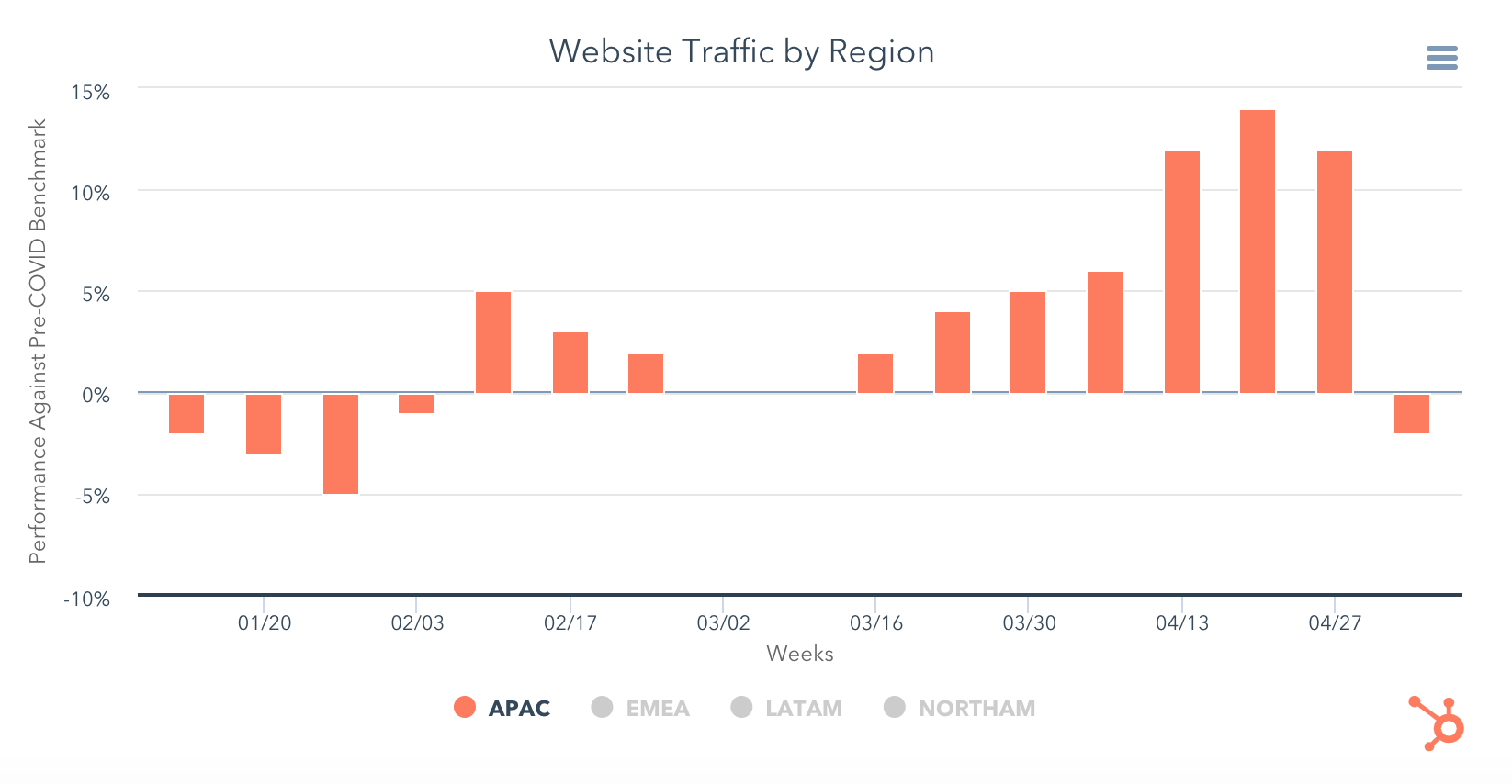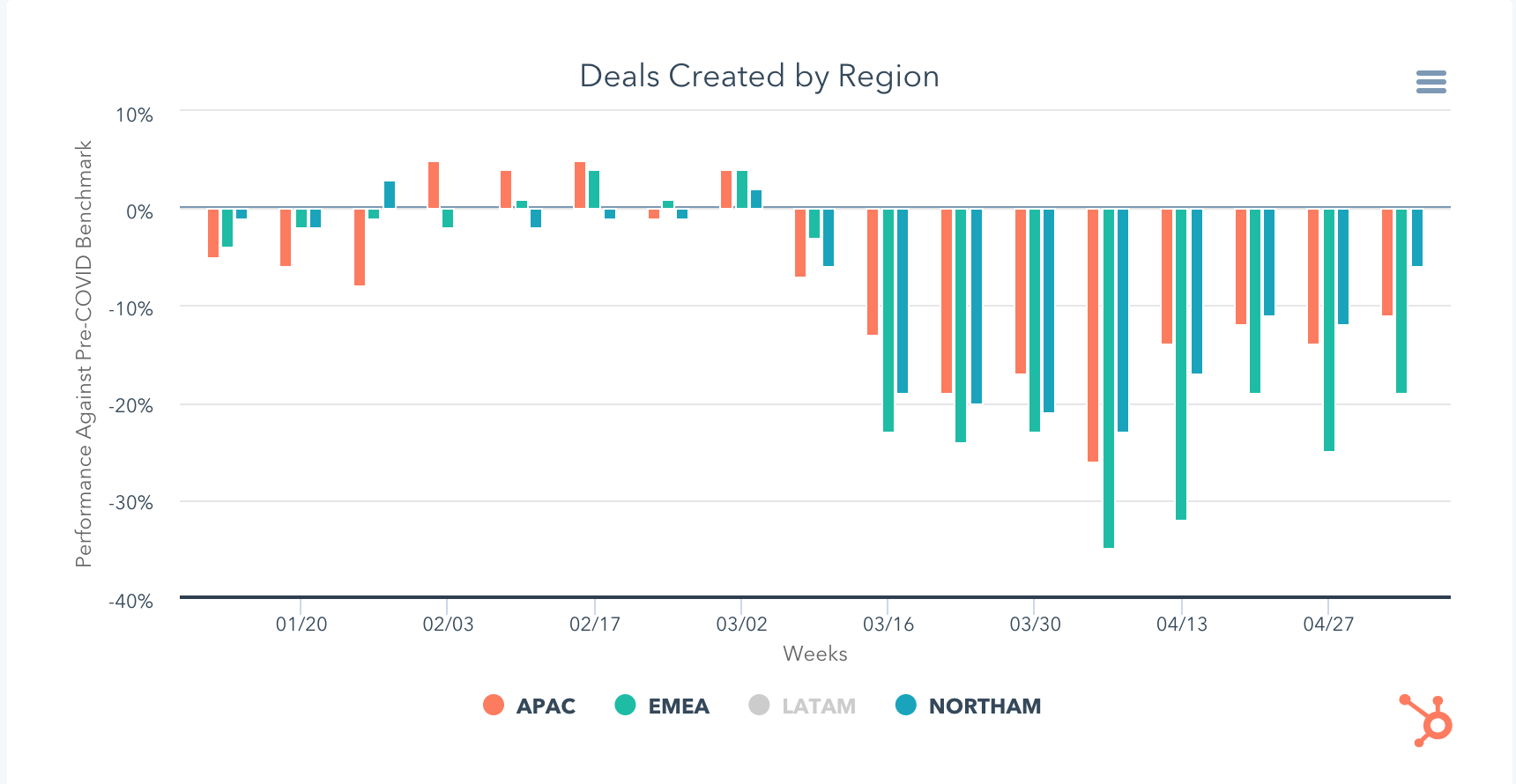In March, businesses around the world saw everything change overnight. Here in Australia, many businesses held their breath and tried to keep their heads afloat. Across many industries, sales dropped off and revenues stagnated, as a consequence businesses put a stop to their marketing spend. For almost two months Australian companies have assessed the new business landscape and made efforts to adapt to the new world we live in. It is now time to reassess your marketing spend.
HubSpot – Our Inbound Marketing Partners
HubSpot has for a long time been considered marketing thought leaders and throughout the COVID-19 crisis, they have closely followed the marketing developments and consequences across industries both nationally here in Australia as well as globally. In other words, HubSpot has gathered relevant data both before and during the pandemic, and as of now in the middle of May, the story they are relating is a positive one.
1. New deal creation is trending positively week-over-week, with Australia outperforming the global trend
HubSpot has been measuring ‘deals created‘ which is a HubSpot specific measurement were it measures potential revenue. These deals could be a booked meeting to discuss your product or service. Globally the month of April was the worst month for deals created and this holds true for the across almost every industry. As the data shows, Asia-Pacific which is represented in orange moves in the right direction. For more metrics, such as industry-specific, see HubSpot’s COVID-19 data.
Interestingly enough, as the world overall is moving in the right direction, Australia is miles ahead. Besides a huge spike of 35% new deals and a 61% increase in closed-won deals, Australia has almost recovered to their pre-COVID-19 stats of deal creations, shining a bright light for the months ahead.
2. The website Traffic has cooled off
As one could imagine, lockdown lead to an increase in website traffic for many. However, as the lockdown is loosening up here in Australia the website traffic is dropping. The graph below relates to the trend throughout the Asia-Pacific region which includes other countries than just Australia.

3. Opportunity for businesses that may have paused ad campaigns.
Before COVID-19 the global ad-spend was around 18%, but ever since the middle of March, this number has been effectively flat. A trend that has remained true across both regions and industries. It is easy to understand why marketing has not been on a top priority for many companies, but there are some strong indications why marketing ought to be prioritised again. Marketing emails have seen a considerable peak during COVID-19 not only have we seen a jump in marketing emails but there has been an explosion in email engagement. As engagement is continuously steadily increasing, this is a great opportunity to start rebuilding your marketing strategy. In addition to that, consumer goods are the only industry which has an ad-spend higher than pre-COVID-19, so if you are active in this industry, you must be keeping your ad-spend up to keep up with your competitors.
Why a Digital Marketing strategy should be your focus
Reviewing all of the data HubSpot has provided one thing becomes evident, for many businesses here in Australia the worst have past and we can now see the horizon. With trends moving in the right directions and website traffic decreasing, it is now more important than ever to have a good digital marketing strategy in place. Any momentum gained during these ordinary times could result in an increase in rankings and conversation rates, ultimately giving you an advantage over your competitors.
This is a defining moment, what will you do?









